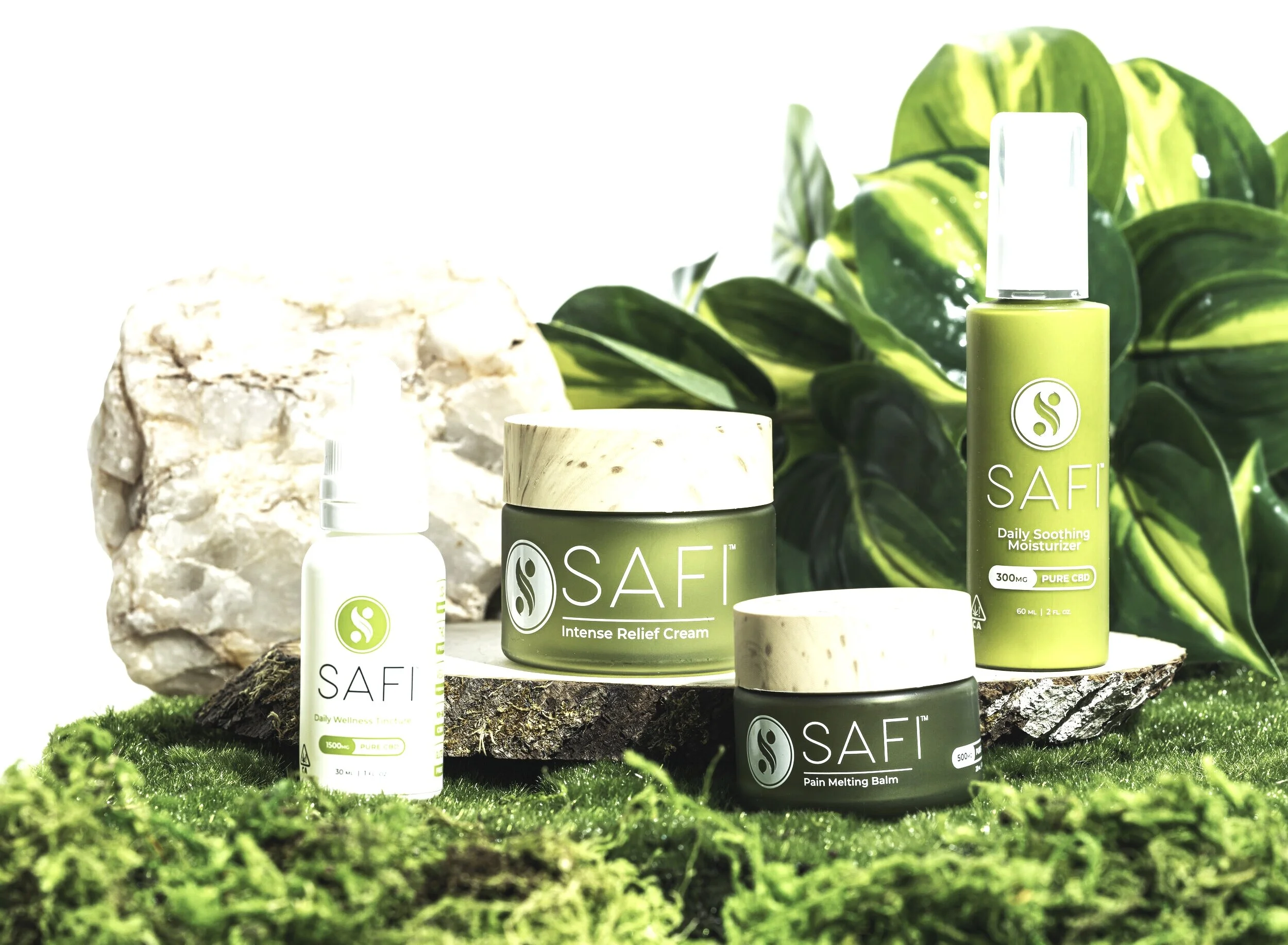Demystifying CBD
Wether you have just come across CBD, or you’ve known about it, and you’ve questioned its healing properties’ validity, questioned what to look for when buying a product infused with CBD, or ask questions like ‘is it a drug?’ or does it really ‘reduce pain?’ then welcome to our discussion with a trusted source on demystifying CBD!
““CBD is a great natural alternative for everyday pain and stress management. It is a modern alternative therapy.””
As scientific and medical studies continue, there is even more to be learnt about the different benefits and application of this natural healing compound.
What is CBD?
CBD (cannabidiol) is one of the many identified cannabinoids found primarily in the Cannabis plant. The two main cannabis subspecies are hemp and marijuana. Hemp is typically grown for its strong fibers and high levels of CBD.
What Does It Do? How Does It Work?
CBD is a plant-based (phyto-cannabinoid) molecule that interacts with the ECS (endocannabinoid system). ECS is a chemical communication system that controls nearly every system in the human body. It also produces some cannabinoids of its own, called endocannabinoids. A primary purpose of the ECS is to help regulate functions such as sleep, immune-system responses, and pain.
According to some recent scientific and medical studies, CBD in many cases has helped manage:
Anxiety
Insomnia
Chronic pain, and
Childhood epilepsy
What is the Difference or Relationship with Hemp Oil, Hemp Seeds, and CBD?
Phyto-cannabinoid rich (PCR) Hemp oil uses the whole plant and contains cannabinoids found in the stalks, leaves, and flowers of the hemp plant.
There are many phytocannibinoid rich oils, the one with psychoactive effects is known as THC [tetrahydrocannabinol]
Hemp seed oil, aka cannabis sativa seed oil, is a great seed oil that's high in antioxidants, omega-3 and -6 fatty acids, but contains no CBD.
In order to get CBD and other compounds from the plant, they must be separated in a process called extraction.
Does CBD Have to be Organic?
To ensure quality and safety, yes. The plant source and farms should be free of any harmful pesticides, chemicals, and toxins.
What Does 'Full Spectrum' Mean?
Full spectrum contains all the beneficial elements of the plant, including cannabinoids, terpenes, chlorophyll, flavanoids, fatty acids, etc.
What are the Different Dosages (Different Milligrams)?
That depends on the CBD potency level in the product. For instance, the 1500mg SAFI Daily Wellness Tincture contains 50mg of CBD per every 1 ml. Similarly, the 3000mg SAFI Daily Wellness Tincture contains 100mg of CBD per ever 1ml. To find our ideal dose, you can always start low (0.5ml) and build your way up to (2ml) daily.
Can You Smoke CBD? (Without THC)?
Yes, there are CBD vapes available on the market with no THC.
The CBD cartridges used in vape pens can contain solvents which can be harmful at high temperatures, so when looking for CBD vape pens look for ones that advertise ‘solvent-free oils’.
Does CBD Give You Any Psychoactive Effects?
CBD does not have any physchoactive effects. THC is the known compound that provides that effect and is mainly found in the Marijuana plant.
How Can You Trust or Know That the CBD You Buy Does Not Have THC?
You can do so by making sure the brand provides 3rd party lab test results. These tests are performed at an independent 3rd party testing lab offering transparency and ensuring proper compliance. Look for the level of purity of the CBD material being used in the products on the test results.
What Should a Consumer Look Out For?
There is CBD in what seems to be every corner now, as its trending, what is important for quality CBD?
Taking quality CBD is of utmost importance as there are a lot of questionable products with questionable claims currently on the market. To make sure you are taking quality CBD, make sure you know where the CBD is being sourced from (ideally from the US), if it has been tested for heavy metals and pesticides and if it has been tested at an independent 3rd party lab for purity level.
Applying vs, Drinking vs Smoking CBD?
Inhaled CBD tends to enter the bloodstream faster than other forms—in as quickly as 30 seconds or less, according to Mitch Earleywine, Ph.D.
Tinctures are the second-quickest method to absorb CBD, after smoking, Earleywine says, typically taking about 15 to 30 minutes.
Edible CBD would be absorbed through the digestive tract, which may take longer or result in a less potent effect.
Topicals aren’t absorbed into the entire body, as other forms can be. Instead, topicals provide targeted relief to the areas applied.







